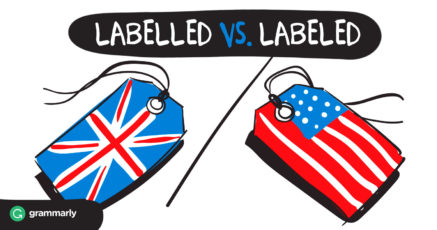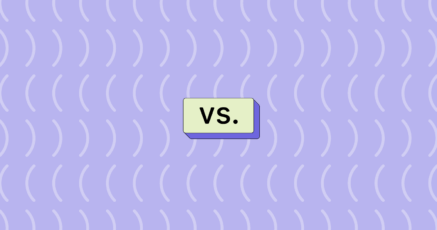Commonly Confused Words - Page 10
- Purposely vs. Purposefully—Learn How to Use Both CorrectlyPurposely and purposefully are two English words that are often confused. Because they both have the same root, purpose, are both...December 31, 2016
- Cannot vs. Can Not vs. Can’t—What’s the Difference?Can’t? Cannot? Can not? Find out the right way to use all three. Can’t is a contraction of cannot, and as such it’s...December 30, 2016
 Labeled or Labelled—Which Is Correct?Labeled and labelled are both correct spellings. Labeled is the preferred spelling in American English. Labelled is the preferred...December 29, 2016
Labeled or Labelled—Which Is Correct?Labeled and labelled are both correct spellings. Labeled is the preferred spelling in American English. Labelled is the preferred...December 29, 2016 “Defence” vs. “Defense”—Which Should You Use?Let’s dispel a spelling mystery. It’s defense against defence, and if you think it’s one of the British English...December 28, 2016
“Defence” vs. “Defense”—Which Should You Use?Let’s dispel a spelling mystery. It’s defense against defence, and if you think it’s one of the British English...December 28, 2016- Bath vs. Bathe—Learn the DifferenceIn American English, bath is always a noun. When you take a bath, it means you wash yourself in a tub of water. The verb form...December 28, 2016
 5 Words to Enjoy by CandlelightDo you like candles? Some enjoy their light; others love the delightful smells of scented candles. There are some surprisingly...December 27, 2016
5 Words to Enjoy by CandlelightDo you like candles? Some enjoy their light; others love the delightful smells of scented candles. There are some surprisingly...December 27, 2016- Talk to vs. Talk with—Which Should I Use?Talk to and talk with both mean to converse with someone. In almost all cases, talk to and talk with can be used interchangeably....December 26, 2016
- Stationary vs. Stationery—What’s the Difference?Stationary means “fixed,” “immobile,” or “unchanging.” Stationery refers to paper, matching...December 22, 2016
 Bingeing or Binging—Which Is Correct?When a verb like binge ends with a vowel, how do you add -ing? Should you keep or drop the E? Bingeing vs. Binging: Which...December 22, 2016
Bingeing or Binging—Which Is Correct?When a verb like binge ends with a vowel, how do you add -ing? Should you keep or drop the E? Bingeing vs. Binging: Which...December 22, 2016 When to Use “Inquire” vs. “Enquire”For the most part, you can use either enquire or inquire and not make a mistake. These two words, however, have traditionally...December 21, 2016
When to Use “Inquire” vs. “Enquire”For the most part, you can use either enquire or inquire and not make a mistake. These two words, however, have traditionally...December 21, 2016